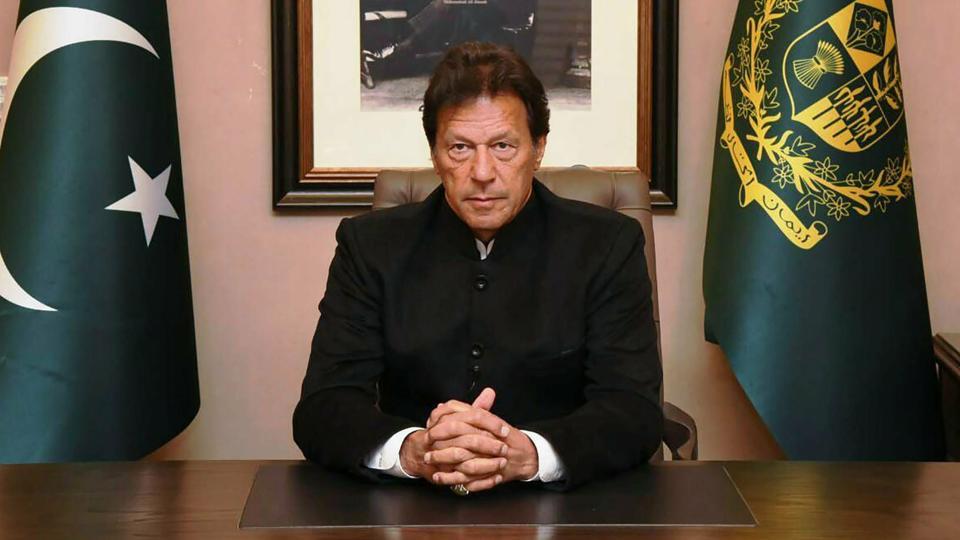
India punctured Pakistan's political prestige with Article 370 repeal
For Pakistan, the Indian move which abrogated Article 370 in August 2019 to revoke the special status of Jammu and Kashmir (J&K), punctures its political prestige vis-a-vis India and more importantly its people.

Pakistan has expelled the Indian envoy, stopped bilateral trade with India and closed its airspace to Indian air traffic, and now allegedly attempted to infiltrate jihadi terrorists into India through the Gujarat coastline, according to Indian intelligence reports.
Pakistan found it a challenge to push jihadis into Kashmir after India fenced the border and heightened its vigil across the Line of Control by the late 1990s. Pakistan then infiltrated jihadis through alternate routes into India from Bangladesh, Nepal and Sri Lanka. Clearly, Pakistan has chosen to wage undeclared unconventional war against India through clandestine violent non-state actors or jihadi terrorists.
For Pakistan, the Indian move which abrogated Article 370 in August 2019 to revoke the special status of Jammu and Kashmir (J&K), punctures its political prestige vis-a-vis India and more importantly its people.
Over 70 years of nationhood, the once model Muslim nation has indoctrinated its citizenry with propaganda that Kashmir is Pakistani territory and that Indian security forces had violated the human rights of Kashmiri Muslims. Therefore, to protect Kashmiri Muslims, Pakistan promoted jihad or holy war across its borders since 1989 into India’s northernmost border state through terrorist groups which masquerade as socio-religious charitable organizations.
Also read: War not an option to deal with Kashmir, says Pak FM Qureshi
Pakistan promoted the mosque-military relationship due to its internal and external dynamics and repeatedly used Islam to rationalise martial law over democracy. For instance, Pakistan’s close ties with Saudi Arabia also aided the growth of political Islam and the rise of sectarianism and ethnic cleavages which are emblematic of a fragile state.
Pakistan’s unconventional war, which was earlier confined to the two border states of Punjab and Jammu & Kashmir till the 1990s, expanded to other parts of the country like Bangalore in 2006 and Mumbai in 2008 through terror attacks on innocent citizens.
Pakistan cannot afford to wage overt war against India due to its poor economy, and therefore, has chosen terrorism as an instrument of foreign policy which is much cheaper and effective. While conventional war is fought only between airmen, soldiers, sailors and para-military personnel, unconventional warfare or terrorism targets ordinary people which puts greater pressure on the government.
Pakistan is unable to engage India in conventional war due to the disparity in military forces which is evident from four wars that the two neighbours have fought in 1947-48, 1965, 1971 and 1999.
In 1971, India aided Bengali freedom fighters with para-military support to covert operations to defeat Pakistan’s 90,000 military garrison stationed in erstwhile East Pakistan which led to the creation of Bangladesh. Ever since, Pakistan has reciprocated through aid to Khalistani guerrillas against Indian security forces after Operation Blue Star since 1984 to dismember Punjab from India. However, Pakistan’s attempts against India failed and thereafter with the Soviet military withdrawal from Afghanistan in 1989, its military leadership focussed on Kashmir.
Also read: Amid tensions with India, Pakistan test-fires N-capable missile ‘Ghaznavi’
Clearly, the US military withdrawal from Afghanistan and the rise of Taliban to power in Kabul are developments which favour Pakistan vis-a-vis India. Today Pakistan does not enjoy good relations with either of its neighbours Afghanistan, Iran or India. To that extent, there are innumerable irritants between Islamabad and Kabul and Islamabad and Teheran. The only difference between its three neighbours is that Pakistan has not fought wars with Afghanistan or Iran but only with India.
Against this backdrop, Pakistan has now test-fired its missiles and extended the tenure of its army chief in response to the deterioration in the regional security environment since the Indian aerial strike on Balakot in Pakistan Occupied Kashmir in February.
Also, the Indian Defence Minister’s latest statement that “No First Use” of nuclear weapons was not binding has alarmed General Headquarters, Rawalpindi in a big way. For Pakistan its nuclear weapon capability is the only answer to tackle overwhelming Indian military superiority.
Pakistan has evolved as a national security state where political democracy and democratic elections are viewed in a qualified fashion to maintain an appearance of democracy, but the ultimate power rests with the military.
Pakistan as a warrior state is obsessed with the military threat from India and fear that its primary influence over Afghanistan may wane. Afghanistan assumes importance because Pakistan lacks strategic depth and can be militarily overrun from west to east by a powerful adversary.
In order to manage these two aspects which condition its national security and foreign policy, Pakistan could prove to be an irrational actor in international politics. The stunted democracy which gives the military unlimited power vis-a-vis democratic institutions was evident from the 1999 Kargil hostilities or the seaborne terrorist attack on Mumbai which should not repeat in future.
Pakistan was foolhardy to undertake a terrorist attack on Mumbai in 2008 despite the US led global war on terror since 2002. In the event that Pakistan once again launches a terrorist attack on Indian soil, how will New Delhi respond?
(The writer is a Professor of International Relations and Strategic Studies at the Christ Deemed to be University, Bangalore)

